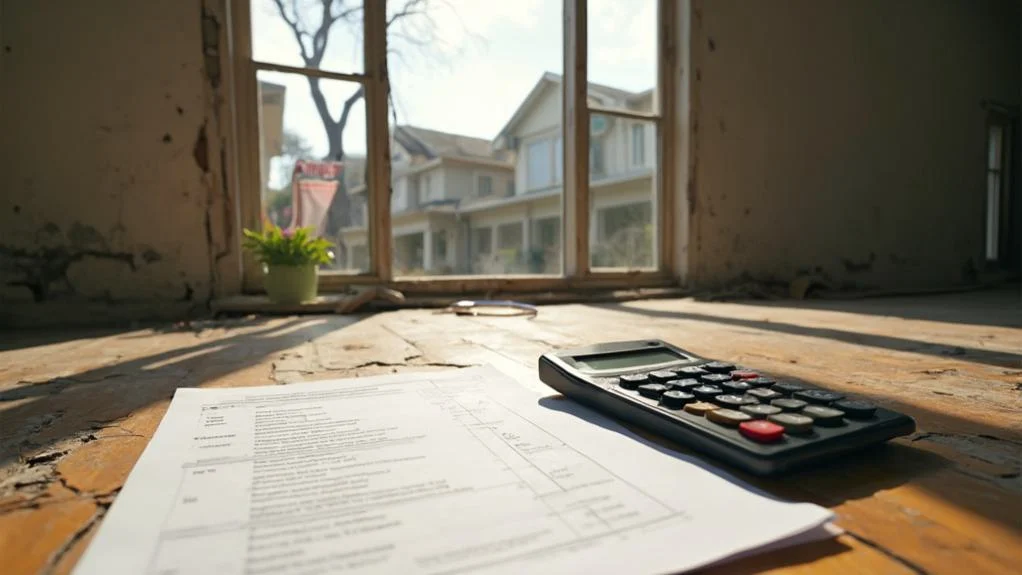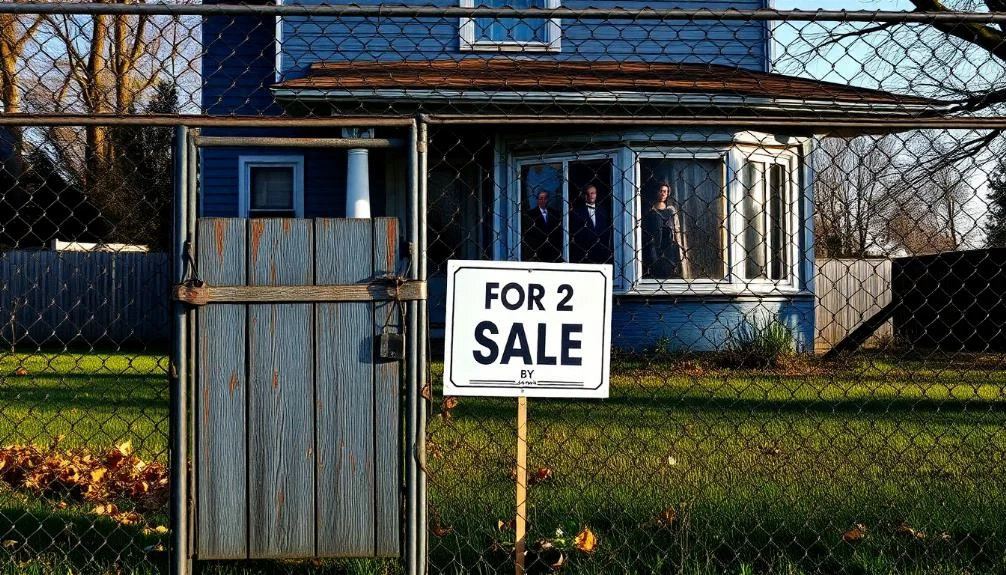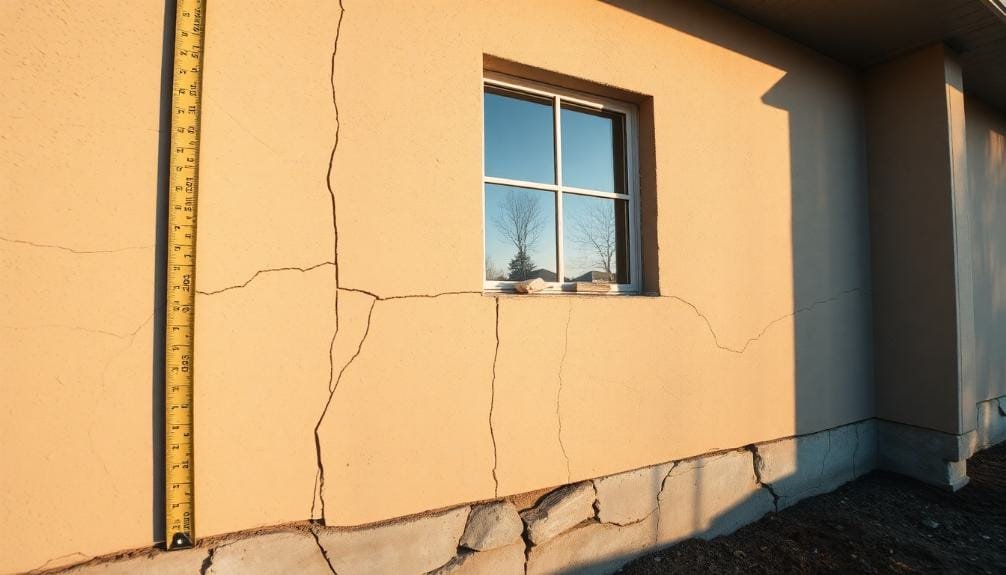Michael J. from Chicago found himself overwhelmed when facing extensive repairs on his aging two-story home while simultaneously managing a cross-country job transfer.
After receiving estimates totaling over $85,000 for critical repairs, he discovered Sell My House Rocket Fast, a company specializing in purchasing homes in any condition.
Within 24 hours of contacting them, Michael received a competitive cash offer for his property, eliminating the need for costly repairs or time-consuming renovations.
Thanks to Sell My House Rocket Fast’s flexible closing timeline and streamlined process, Michael was able to finalize the sale in just two weeks, allowing him to focus on his career move without the burden of his deteriorating property weighing him down.
Key Points To Remember
- Perform comprehensive inspections to understand repair scope and costs before choosing selling approach
- Market property as-is to renovation-focused buyers for faster sales without repair investments
- Focus marketing efforts on cash buyers, investors, and DIY enthusiasts seeking fixer-upper opportunities
- Use strategic photography and honest listings to showcase potential while disclosing needed repairs
- Negotiate with repair credits or price adjustments rather than completing repairs pre-sale
Assess Your Property’s Condition
A thorough assessment of your property’s condition is essential before listing it for sale. Start by conducting an exhaustive property inspection that evaluates all major systems, including plumbing, HVAC, and electrical components. You’ll want to understand both immediate repair needs and potential future issues that could impact your home’s value. Using a cost breakdown calculator can help estimate expenses for necessary repairs and renovations.
Consider hiring professionals to perform a detailed condition assessment, which can include visual observations and documentation review. They’ll examine your home’s structural systems, site improvements, and overall functionality while following standardized ASTM guidelines. This process helps you identify any legal or environmental concerns that might affect your sale. Creating a reliable conditions database will help guide your investment decisions for repairs.
The benefits of conducting thorough assessments are significant. You’ll be able to make informed decisions about which repairs to prioritize and gain accurate cost estimates for necessary improvements. If you’re working with limited time or resources, you might opt for a modeled assessment, which provides quick insights without extensive physical walkthroughs. Remember, understanding your property’s condition isn’t just about identifying problems – it’s about establishing realistic expectations for both you and potential buyers, while maximizing your home’s market value through strategic improvements.
Choose Your Selling Strategy
Determining the right selling strategy for a house needing repairs can substantially impact your final sale price and timeline. You’ll need to weigh two primary options: selling as-is or making strategic repairs before listing.
If you’re considering the as-is route, you’ll want to market your property directly to investors and renovation enthusiasts. These selling tips include being upfront about the home’s condition in your listing and pricing the property competitively to reflect its current state. A skilled real estate agent’s expertise can be invaluable when marketing a fixer-upper effectively. You’ll typically net a lower sale price, but you’ll save time and money on repairs. With cash buyers increasingly interested in as-is properties, sellers can often close deals within weeks of accepting an offer.
Alternatively, implementing smart pricing strategies through strategic repairs might yield a better return. Start by conducting a pre-listing inspection to identify critical issues. Then, focus your resources on fixes that offer the highest ROI, such as addressing foundation problems or updating essential systems. You can highlight these improvements in your listing to attract traditional buyers who prefer move-in ready homes.
Repair Costs Vs Market Value

When weighing repair costs against market value, you’ll need to evaluate two key financial metrics that don’t always align. Understanding replacement costs is vital, as they represent what you’d actually spend to rebuild or repair your home to its original condition, while market value reflects what buyers might pay for your property in its current state.
Consider how your local market conditions affect both figures. For instance, if replacement costs in your area are running at $324 per square foot, but your market value is substantially lower, you’ll want to be strategic about which repairs to undertake. This understanding helps you avoid insurance gaps and make informed decisions about improvements that’ll give you the best return on investment.
Remember that construction materials, labor costs, and building codes all influence replacement costs, while location and buyer demand drive market value. You’re in a better position to serve potential buyers when you can clearly explain the relationship between these factors. This knowledge also helps you price your home competitively while accounting for necessary repairs that the next owner might need to address. Working with estate attorneys during property sales can help navigate complex repair negotiations and protect your interests, especially when dealing with inherited properties that need significant updates.
Target the Right Buyers
Successfully targeting the right buyers for a house that needs repairs can dramatically impact your selling timeline and final price. By understanding key buyer personas, you’ll be better equipped to position your fixer-upper in the market and create targeted marketing strategies that resonate with potential purchasers.
When selling a property that needs work, you’ll typically encounter four main types of interested buyers. Investors and house flippers look for properties with profit potential and aren’t afraid of major renovations. First-time homebuyers might see your property as an affordable entry point into homeownership, willing to invest sweat equity for long-term value. Cash buyers often prefer quick, as-is transactions and can close rapidly. DIY enthusiasts get excited about the opportunity to customize and renovate according to their vision.
To effectively reach these groups, highlight features that matter most to each. Emphasize structural integrity for investors, showcase classic architectural details for DIY enthusiasts, and point out neighborhood potential for first-time buyers. Your real estate tips should focus on communicating the property’s renovation potential while being transparent about needed improvements. Remember, matching your home renovation opportunities with the right buyer profile increases your chances of a successful sale.
If the property is part of an estate, keep in mind that probate sales require court approval and must be sold in “as-is” condition without any alterations during the process.
Marketing a Fixer-Upper Home

Marketing a fixer-upper calls for a strategic blend of honesty and vision to attract the right buyers. You’ll want to showcase the property’s potential while being transparent about its current condition, helping potential buyers see beyond the imperfections to envision their dream home.
Start by investing in professional photography and virtual staging to highlight the property’s best features. These visual tools can transform empty or dated spaces into inspiring possibilities that capture buyers’ attention. Create detailed online marketing listings that emphasize unique characteristics like original hardwood floors, high ceilings, or spacious yards.
When crafting your marketing strategy, focus on multiple channels to reach renovation-minded buyers. List your property on popular real estate websites, share virtual tours, and utilize social media platforms to expand your reach. Consider creating before-and-after scenarios that demonstrate the property’s transformation potential, and partner with local contractors who can provide renovation estimates.
Remember to price your property strategically, factoring in repair costs and market conditions. By providing thorough information about potential improvements and their costs, you’ll help buyers make informed decisions while positioning your fixer-upper as an exciting opportunity. For sellers looking to maximize profits, choosing a For Sale By Owner approach can eliminate costly real estate commission fees while maintaining full control over the marketing process.
Negotiating Repair Requests
Repair negotiations stand at the heart of many real estate transactions, especially when selling a home that needs work. When you’re faced with inspection results, it’s vital to develop effective inspection strategies that will help you navigate these delicate discussions successfully.
As a seller, you’ll want to focus on addressing major issues while being strategic about your concessions. Think about offering credits or price reductions instead of making repairs yourself, as this can often streamline the process and give buyers more control over the work. You’ll find that transparency about existing problems can actually strengthen your position during negotiations.
For the best outcomes, work closely with your real estate agent to evaluate repair requests and determine the most advantageous approach. You might want to weigh the option of including a home warranty as part of your negotiation package, which can provide additional peace of mind to buyers. Remember to document all agreements carefully in repair addendums, and don’t hesitate to request contractor quotes to support your position. If you’re offering repairs, be prepared for potential re-inspections to verify the work’s completion and quality. Consider direct marketing techniques to attract potential buyers who may be interested in taking on repair projects themselves, as this can expand your pool of interested parties.
Common Questions
Can I Sell My House if It Has an Open Building Permit?
You’re traversing a temporary administrative hurdle. Yes, you can sell your home with permit issues, but it’s wise to address zoning laws and open permits first. Otherwise, consider offering buyers compensation or selling as-is.
Should I Disclose Repairs Completed Without Proper Permits to Potential Buyers?
Yes, you must disclose unpermitted repairs to buyers – it’s required by disclosure laws. If you don’t, you’ll face legal consequences and repair costs. Being transparent protects both you and your buyers’ interests.
How Do Seasonal Changes Affect the Sale of Homes Needing Repairs?
Like clockwork, the seasonal market impacts your repair timing. You’ll find spring’s busy market tolerates fewer repairs, while winter’s slower pace lets you tackle projects methodically, potentially saving money on labor costs.
What Insurance Challenges Might Buyers Face When Purchasing a Fixer-Upper?
You’ll face higher premiums and limited options when insuring a fixer-upper. Insurance companies view repair costs as risks, requiring specialized policies like Builder’s Risk or Vacant Dwelling coverage to protect your investment properly.
Can Previous Repair Work Affect a Home’s Historical Designation Status?
With 75% of historic homes requiring major repairs, your property’s designation status can be jeopardized if previous work wasn’t properly documented or used incorrect materials. You’ll face higher restoration costs to rectify non-compliant changes.
Final Thoughts
Selling a home in need of repairs requires careful consideration of repair investments, market positioning, and buyer targeting. Homeowners often struggle with the dilemma of whether to invest in costly repairs or accept a lower sale price, which can lead to extended market times and mounting expenses. For those seeking a faster, hassle-free alternative, Sell My House Rocket Fast provides guaranteed 24-hour offers and flexible closing schedules, eliminating the need for repairs or lengthy negotiations. If you’re facing the challenge of selling a property that needs work, consider reaching out today for a no-obligation cash offer that puts you in control of your timeline.








